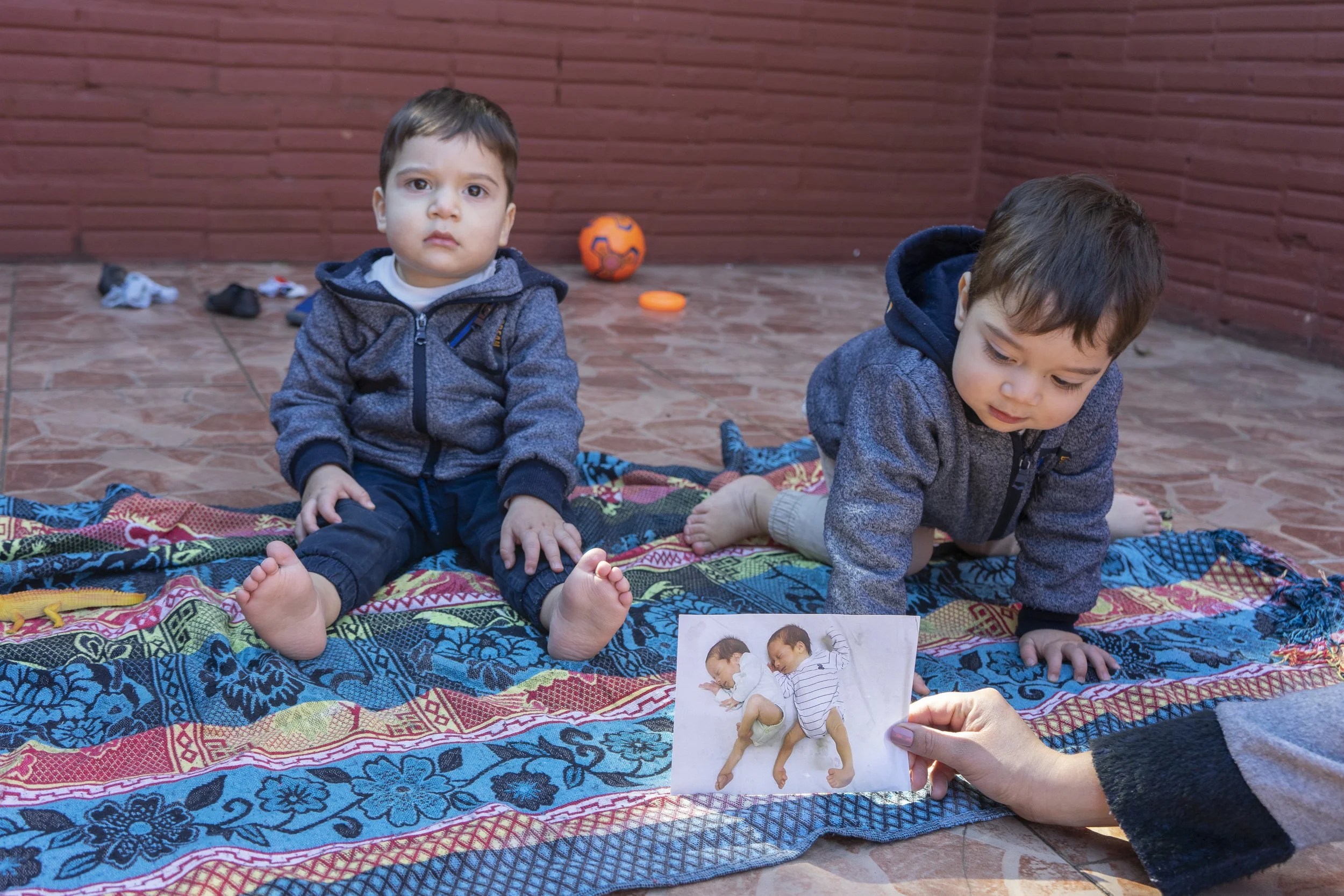Clubfoot Success Stories

Meet Amir from Bangladesh
Story provided by Walk for Life Bangladesh
Amir* was born in Bangladesh with bilateral clubfoot. He was treated as a baby using the Ponseti Method. Amir now walks to school each day with his friends and is unaffected by the bullying and exclusion that so often accompanies children with untreated clubfoot.
Amir plans to begin working when he turns 18. The average annual wage in Bangladesh is $1,750. Assuming that clubfoot treatment has given him a 70% higher chance of gaining employment (based on an employment rate of 30% for people with disability in low- and middle-income countries). He can expect to gain nearly $73,000 in increased earnings over his lifetime, thanks to the clubfoot services in his country.
For now though, Amir is more interested in playing football!
*name changed to protect identity

Meet Gael and Enrique from Paraguay
Story provided by Fundacion Solidaridad, Paraguay
One-and-a-half year old twins, Gael and Enrique, were treated by Fundacion Solidaridad in Paraguay.
Strategic guidance and collaboration between the Paraguayan Ministry of Health and a local NGO resulted in treatment coverage for babies increasing from 15% to >80%. The Paraguayan government and a local civil society organisation co-designed a comprehensive service delivery plan - collaboratively making decisions about all elements of the programme including clinic locations and deciding which clinicians should be trained.
Each partner agreed upon their role in programme coordination, including training, data collection, and programme management. Together, they considered structural barriers and found solutions to address them, including an analysis of geographic factors to determine clinic locations to improve access in isolated areas.
Throughout the planning process, data informed their decisions. The clubfoot programme had a visible presence within the National Birth Defects Programme which facilitated early detection and referral.
Key components of this successful partnership include:
Shared leadership
Integration with the National Birth Defects Program
Collaboration for key elements of service delivery
Provision of care within existing healthcare facilities
Identification and addressing structural barriers
The success of the clubfoot program in Paraguay serves as a strong example of what can happen with a strong partnership between the government and civil society organisations for integration of services within national system.

Meet Kibenesh from Ethiopia
Kibenesh is a 14-year-old girl who recently made her way to the CURE Children’s Hospital of Ethiopia. Described by her mother, Worke, as "well-mannered and clever," Kibenesh has always been strong and determined, completing 5th grade despite suffering from a physical disability. Born with clubfoot, a condition that causes her feet to turn inward, Kibenesh faced obstacles not just in movement but in the perceptions of her community in rural Ethiopia. In places like where Kibenesh grew up, it's a common belief that congenital disabilities are untreatable, leaving many children to live their entire lives limited by conditions that can often be addressed with early intervention. For Kibenesh, whose clubfoot went untreated in infancy due to a lack of awareness and access to medical care, walking has always been a struggle, and running was something she could only watch others do.
Thankfully, after many years of having to endure the physical and emotional challenges caused by her disability, Kibenesh finally learned that treatment was indeed possible. Overjoyed, Kibenesh and Worke travelled four hours by bus to Addis Ababa.
Now at CURE Ethiopia’s hospital, Kibenesh is excited to begin her treatment journey. She is not just looking forward to the day she can run alongside her peers but dreams of becoming a doctor to help bring treatment to children facing similar challenges. Kibenesh’s mum, Worke, is also very excited. She sends her heartfelt gratitude to everyone involved in her daughter’s treatment.
“I have never run a day in my life, so I feel very sad whenever I see children running and playing,” said Kibenesh, recalling her childhood.
Story provided by CURE Ethiopia



